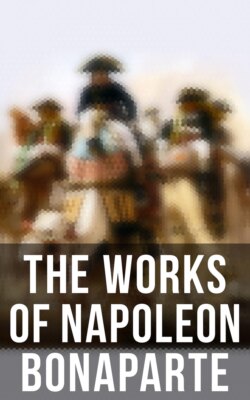Читать книгу The Works of Napoleon Bonaparte - Louis Antoine Fauvelet de Bourrienne - Страница 64
На сайте Литреса книга снята с продажи.
ОглавлениеMAXIM LIX.
Table of Contents
There are five things the soldier should never be without—his musket, his ammunition, his knapsack, his provisions (for at least four days), and his entrenching-tool. The knapsack may be reduced to the smallest size possible, if it be thought proper, but the soldier should always have it with him.
NOTE.
It is fortunate that Napoleon has recognized the advantage of giving to every soldier an entrenching-tool. His authority is the best answer to the ridicule which has been thrown upon those who proposed it. An axe will be found to inconvenience the foot-soldier as little as the sword he wears at his side, and it will be infinitely more useful. When axes are given out to companies, or are carried by fatigue-men during a campaign, they are soon lost; and it often happens, when a camp is to be formed, that a difficulty arises in cutting wood and building huts for the soldier; whereas, by making the axe a part of every man’s appointments, he is obliged to have it always with him; and whether the object be to entrench himself in a village, or to erect huts in a camp, the commander of a corps will speedily see the advantage of this innovation.
When once the axe has been generally adopted, we shall, perhaps, see the desirability of issuing pickaxes and shovels to particular companies, and also the benefit of more frequent entrenchments. It is more particularly during retreats that it is important to entrench when the army has reached a good position; for an entrenched camp not only furnishes the means of rallying troops which are pursued, but if it be fortified in such a manner as to render the issue of an attack doubtful to the enemy, it will not only sustain the morale of the soldier in the retreat, but afford the general-in-chief opportunities for resuming the offensive, and profiting by the first false movement on the part of his adversary. It will be recollected how Frederick, in the campaign of 1761, when surrounded by two Russian and Austrian armies, whose united force was quadruple his own, saved his army by entrenching himself in the camp of Buntzalvitz.
